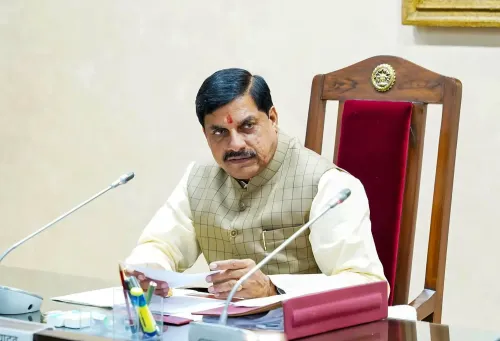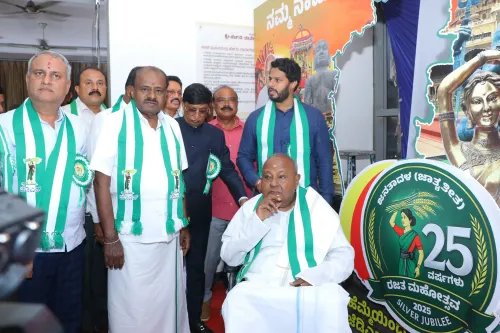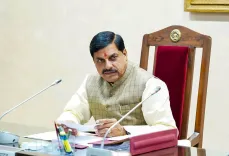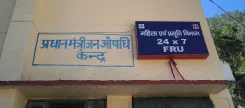Has India Established Itself as a Preferred Security Partner in the Indo-Pacific?
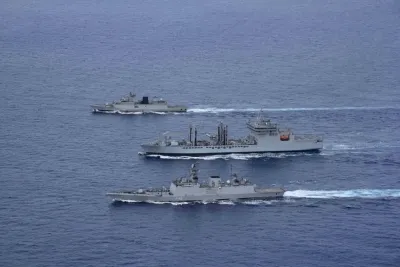
Synopsis
Key Takeaways
- India's evolving role as a security partner in the Indo-Pacific region.
- Strengthened defence collaborations with multiple nations.
- Introduction of MAHASAGAR to enhance regional maritime security.
- Active participation in international naval exercises like MILAN.
- Emphasis on a rules-based maritime order and freedom of navigation.
New Delhi, Aug 10 (NationPress) India has evolved into a "preferred security partner" within the Indo-Pacific region, creating defence alliances that encompass joint military exercises, capacity building, and the export of defence equipment—either as grants or under a defence Line of Credit, as noted by former Indian diplomat Suchitra Durai.
Trilateral maritime security collaborations with Sri Lanka and the Maldives began in 2011 and have now extended to additional Indian Ocean nations, such as Mauritius and Bangladesh, with Seychelles participating as an observer within the Colombo Security Conclave, which now boasts a charter and a secretariat located in Colombo. The Indian Ocean Naval Symposium (IONS) includes 25 member nations from South Asia, West Asia, Africa, Southeast Asia, and European nations with territories in the Indian Ocean, along with nine observers and a rotating chair (with India set to assume the chair in late 2025). The biennial MILAN exercise, organized by the Indian Navy, aligns with India's vision of SAGAR and the Act East policy, as highlighted by Durai in an article for Mizzima News, a prominent media outlet in Myanmar.
A pivotal aspect of maritime security is the enhancement of maritime domain awareness. In this context, India has been actively pursuing white shipping agreements with numerous countries (22 agreements have been finalized to date) and has established a state-of-the-art Information Fusion Centre (IFC – IOR) in Gurugram to facilitate maritime information sharing among member states.
Ten years following the introduction of SAGAR, during an official visit to Mauritius in 2025, Prime Minister Narendra Modi announced MAHASAGAR (Mutual and Holistic Advancement for Security and Growth Across Regions), an updated doctrine. While SAGAR refers to 'sea,' MAHASAGAR symbolizes 'ocean' in Hindi and various Indian dialects. This marks a strategic transition from a regional focus on the Indian Ocean to a broader global maritime perspective, particularly emphasizing the Global South. Recent interactions by PM Modi with Mauritius, the Maldives, Trinidad and Tobago, Ghana, and currently the Philippines are in line with the MAHASAGAR vision.
India has been sharing its development experiences and technical know-how in the spirit of “Vasudhaivakutumbakam” (the ancient belief that the world is one family). As PM Modi articulated in his address to the Ugandan Parliament in 2018: "Our developmental partnership will be led by your priorities and will be on terms that will empower you without limiting your future."
The Indian approach to developmental cooperation is multifaceted, utilizing various instruments such as grant-in-aid, concessional lines of credit, capacity building, and technical support.
In June 2018, at the Shangri-La conference, PM Modi articulated India's vision for the Indo-Pacific. For India, the Indo-Pacific signifies a free, open, and inclusive region that "embraces us all in a common pursuit of progress and prosperity." He underscored the importance of ASEAN centrality, a rules-based order, freedom of navigation, unhindered trade, and the peaceful resolution of disputes in accordance with international law. There exists significant synergy between India's approach and the ASEAN Outlook on the Indo-Pacific. In November 2019, during the East Asia Summit in Bangkok, India introduced the Indo-Pacific Oceans Initiative (IPOI), a structured initiative composed of seven pillars for practical collaboration rooted in the SAGAR vision. India’s active role in the QUAD (comprising Australia, India, Japan, and the USA) aligns with our Indo-Pacific strategy. Previously, in 2014, India initiated FIPIC (Forum for India-Pacific Islands Cooperation), a strategic effort aimed at bolstering diplomatic and economic relations with Pacific island nations.
In 2023, during India's G-20 presidency—whose central theme was inclusivity—the African Union was invited to join the group. India's presidency revitalized multilateralism, amplified the voice of the Global South, and championed development. Since then, India has hosted three editions of the Voice of the Global South summit.

